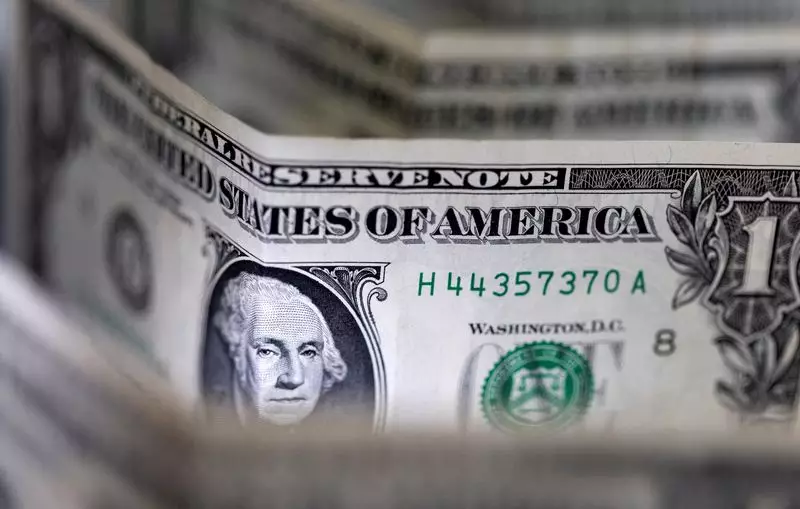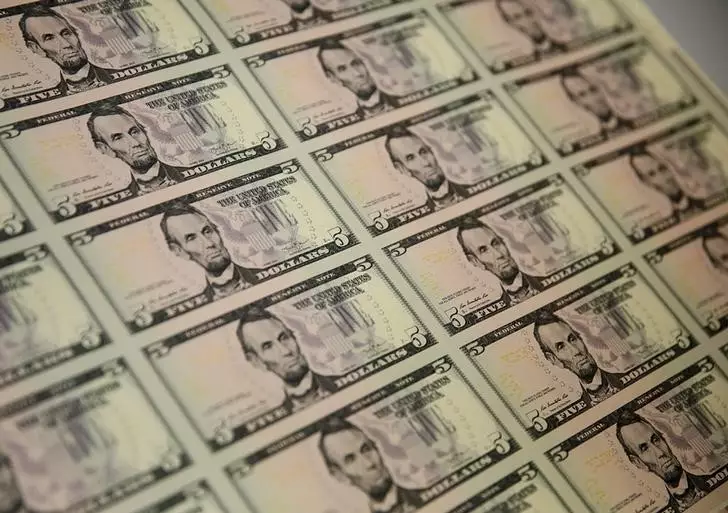Rising US Dollar Amidst Political Shifts: Analyzing Market Reactions

As the United States heads towards the presidential election, a noticeable shift in the value of the US dollar (USD) has been observed. Analysts at UBS have pointed out that the increasing probability of a victory for Republican candidate Donald Trump is playing a pivotal role in bolstering the USD. The financial markets are inherently sensitive to political landscapes, and with Trump’s potential policies geared towards protectionism—such as imposing higher tariffs—the perception is that these could positively impact the dollar’s strength relative to other currencies.
As Trump’s prospects improve, market sentiment begins to favor a stronger USD. Investors often gravitate toward assets perceived to benefit from certain political outcomes, and in this case, the anticipation of a Trump presidency has led to a wave of USD-positive sentiment among traders. Such reactions not only reflect confidence in economic policies associated with Trump but also highlight the turbulent nature of markets in response to political changes.
UBS has adjusted its expectations for the dollar’s performance from September to December 2024, predicting a potential rebound despite an anticipated slight decline by year-end. This forward-looking stance indicates a cautious optimism about the USD, driven largely by political dynamics. Recent market maneuvers include strategies like engaging in long AUD/USD positions, but UBS analysts express hesitance to undertake similar approaches with EUR/USD or USD/JPY pairs, citing the current market’s volatility and positioning.
The reluctance to engage with certain currencies, particularly the Japanese yen (JPY), comes amid fears that high implied volatility may lead to unfavorable conditions for long positions. With the elections on the horizon, many investors remain on the sidelines, assessing the risks associated with currency trading during this politically charged period.
European Central Bank and Euro Dynamics
Amidst the rising USD, attention also turns to the European Central Bank (ECB). The market is widely expecting another interest rate cut—likely 25 basis points—which can further destabilize the euro (EUR). Such monetary policies can have an immediate impact on EUR/USD dynamics, hence the market’s cautious outlook regarding the euro’s strength in the near term.
With traders preparing for additional softness in the EUR, current positions indicate a market that is already adjusting to the potential for further declines. This trend positions the EUR/USD pair as increasingly sensitive to US geopolitics and economic performance, suggesting that investors should closely monitor developments both politically and economically in the United States.
Recent market activity shows slight fluctuations, as reflected in the EUR/USD increase of 0.1% to 1.0894, and the USD/JPY rising 0.1% to 149.34, while AUD/USD fell 0.2% to 0.6685. Such minor adjustments are indicative of a market caught between optimism regarding the USD’s future and caution surrounding geopolitical risks.
Ultimately, as political scenarios evolve, so too will the monetary strategies of stakeholders in the foreign exchange market. Investors must stay agile, analyzing developments not only in the electoral domain but also in central bank policies that shape the economic landscape. The interplay between politics and finance presents both challenges and opportunities, making it essential for investors to remain informed and responsive in a constantly shifting environment.





